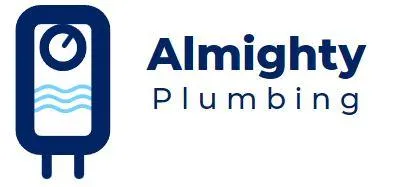What You Need to Know About Raleigh Water Heater Replacement Cost
If you've decided to replace your water heater in Raleigh, it is essential to have a clear understanding of the associated costs. Whether you are contemplating switching to an electric or gas water heater, it is crucial to be well-informed about the potential expenses involved in upgrading this essential appliance in your home. By conducting thorough research and gathering information about the various cost factors, you will be better equipped to make a well-informed decision that fits within your budget and guarantees a dependable hot water system for your household.

When do you need to replace a water heater?
Knowing when to replace a water heater is essential to ensure your home continues to have a reliable supply of hot water. There are several signs to look out for that indicate it may be time to replace your water heater:
Consider the age of your water heater. On average, a traditional tank-style water heater has a lifespan of 8 to 12 years. If your water heater is approaching or has surpassed this timeframe, it is wise to start considering a replacement. Older units are more prone to developing leaks and experiencing other issues that can be costly to repair.
Pay attention to any noticeable decrease in the hot water supply. If you constantly find yourself running out of hot water or the water is not as hot as it used to be, it could be a sign that your water heater is failing. Sediment buildup in the tank over time can reduce its efficiency and heat transfer, resulting in inadequate hot water.
Keep an eye out for any signs of water leakage around the water heater. Leaks can indicate a serious problem that may require replacing the unit entirely. If there is water pooling around the base of the water heater, it could be a sign of a leaking tank. In such cases, it is important to act quickly to prevent further damage and potential flooding.
Unusual noises coming from the water heater can also be a cause for concern. Over time, sediment can harden and create a layer at the bottom of the tank. When the water heater heats the water, this sediment can cause rumbling or popping noises. Besides being noisy, this sediment buildup can reduce the efficiency and longevity of the unit.
Consider the overall cost of repairs. If the cost of repairing your water heater exceeds 50% of the cost of a new unit, it may be more financially sensible to invest in a replacement. Repairs can add up over time, making a new water heater a more cost-effective option in the long run.
To guarantee a continuous flow of hot water throughout your household, it's crucial to be proactive rather than waiting for your aging water heater to break down. Taking the initiative with regular maintenance tasks, like flushing the tank to eliminate sediment, inspecting for leaks, and checking the heating elements, can greatly extend the lifespan of your water heater. Furthermore, being aware of certain telltale signs that indicate the need for a replacement - such as the unit's age, the presence of corrosion or leaks, and insufficient hot water - enables you to tackle any potential problems before they escalate into significant issues.

What affects the cost of replacing a water heater?
There are several factors that can influence the cost of replacing a water heater:
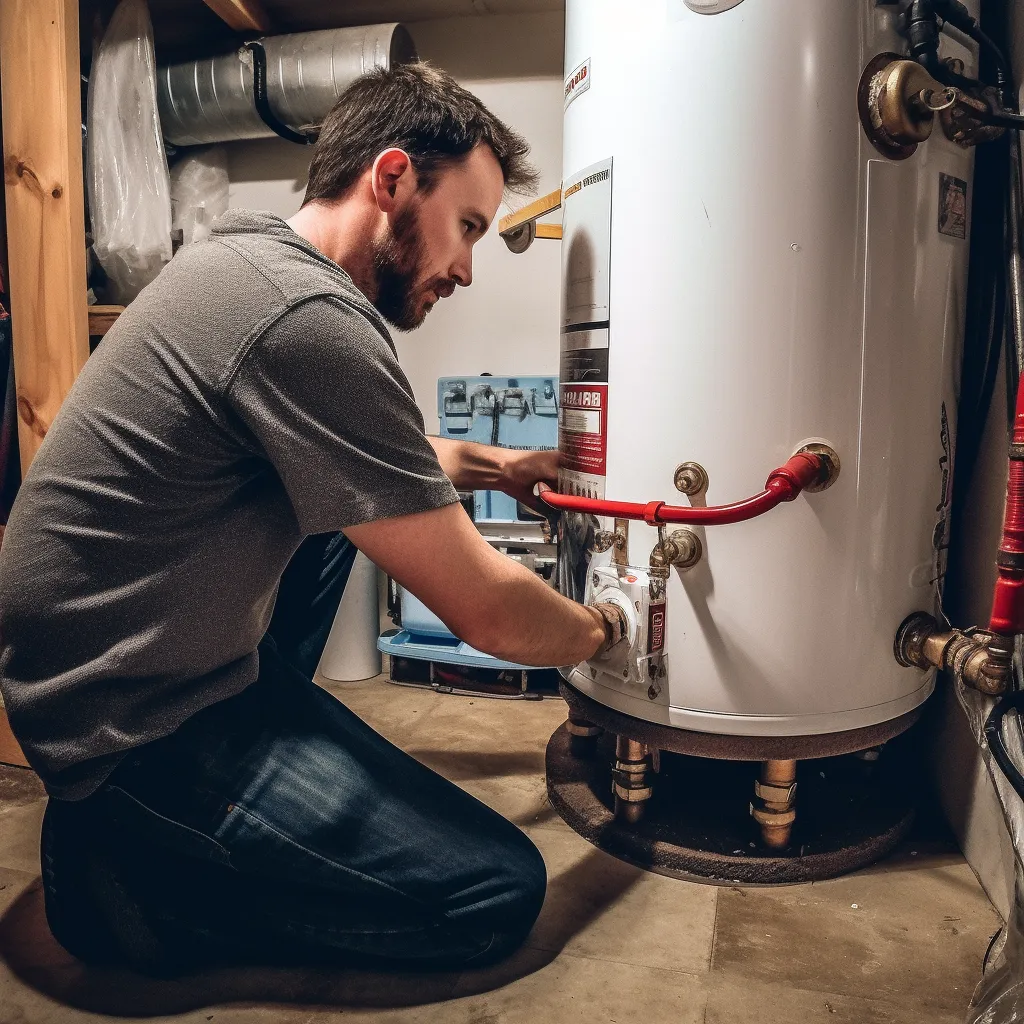
The size of the water heater is one such factor, as larger units typically come with a higher price tag.
The type of water heater you choose, such as a traditional tank-based model or a tankless option, can affect the overall cost.
The location of the water heater within your home may also impact pricing, as certain installations may require additional labor or materials.
Any necessary modifications or upgrades to your plumbing system can contribute to the overall cost of replacement.

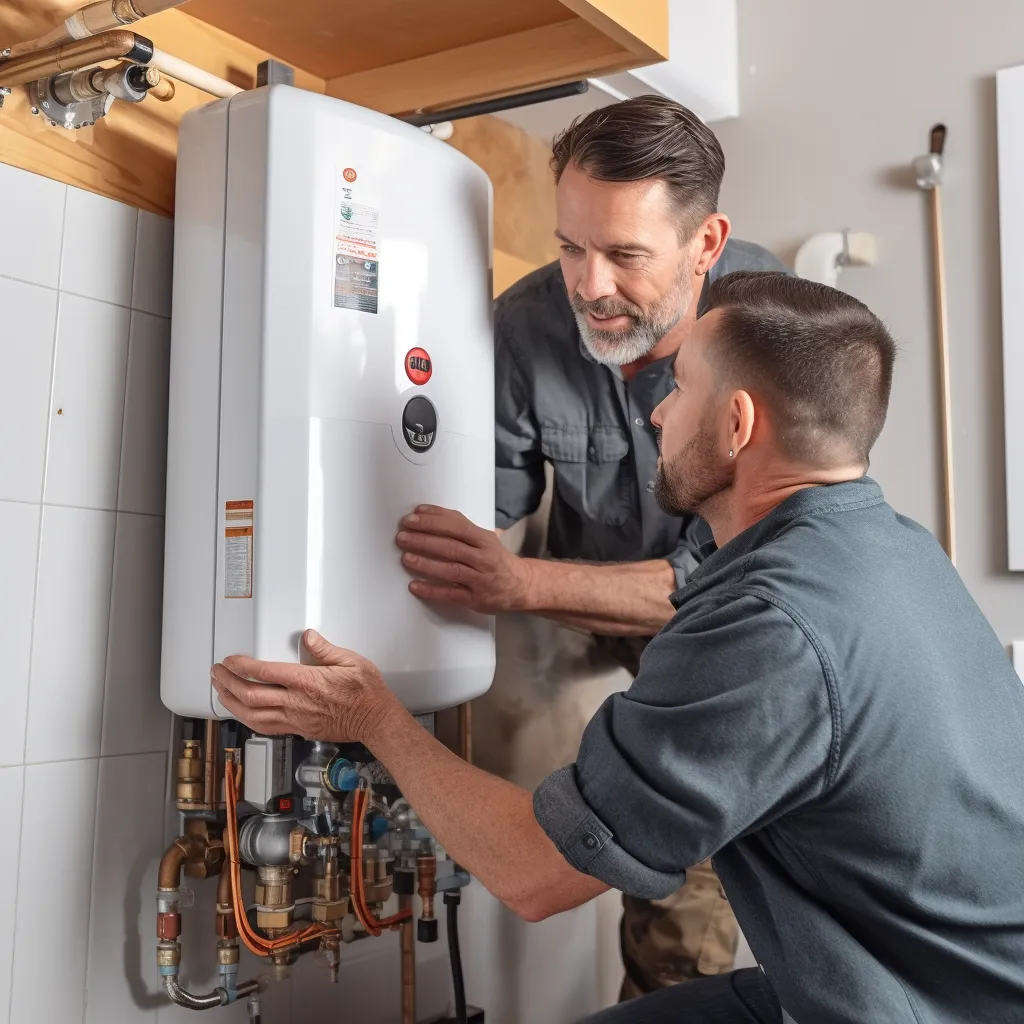
Replacing with energy-efficiency in mind
Investing in an energy-efficient water heater offers numerous advantages:
Energy-efficient models are designed to consume less energy, which not only helps reduce monthly utility bills but also leads to long-term cost savings.
Our range of water heaters is designed to offer an enhanced hot water experience, delivering a steady and pleasant flow of temperature-controlled water. With our water heaters, you can enjoy a consistent supply of hot water that meets your requirements, ensuring a reliable and optimal temperature that provides utmost comfort.
When it comes to energy-efficient models, their superior durability and reliability are often attributed to the utilization of high-quality materials and advanced technology. This ensures that these models can be used for an extended period without any compromise on performance.
Energy-efficient water heaters play a vital role in promoting a greener and more sustainable environment by curbing greenhouse gas emissions. These innovative appliances are designed to minimize energy consumption, thereby ensuring a significant reduction in carbon footprint. By utilizing advanced technologies and processes, energy-efficient water heaters effectively decrease the amount of energy required to heat water, resulting in a more eco-friendly alternative.
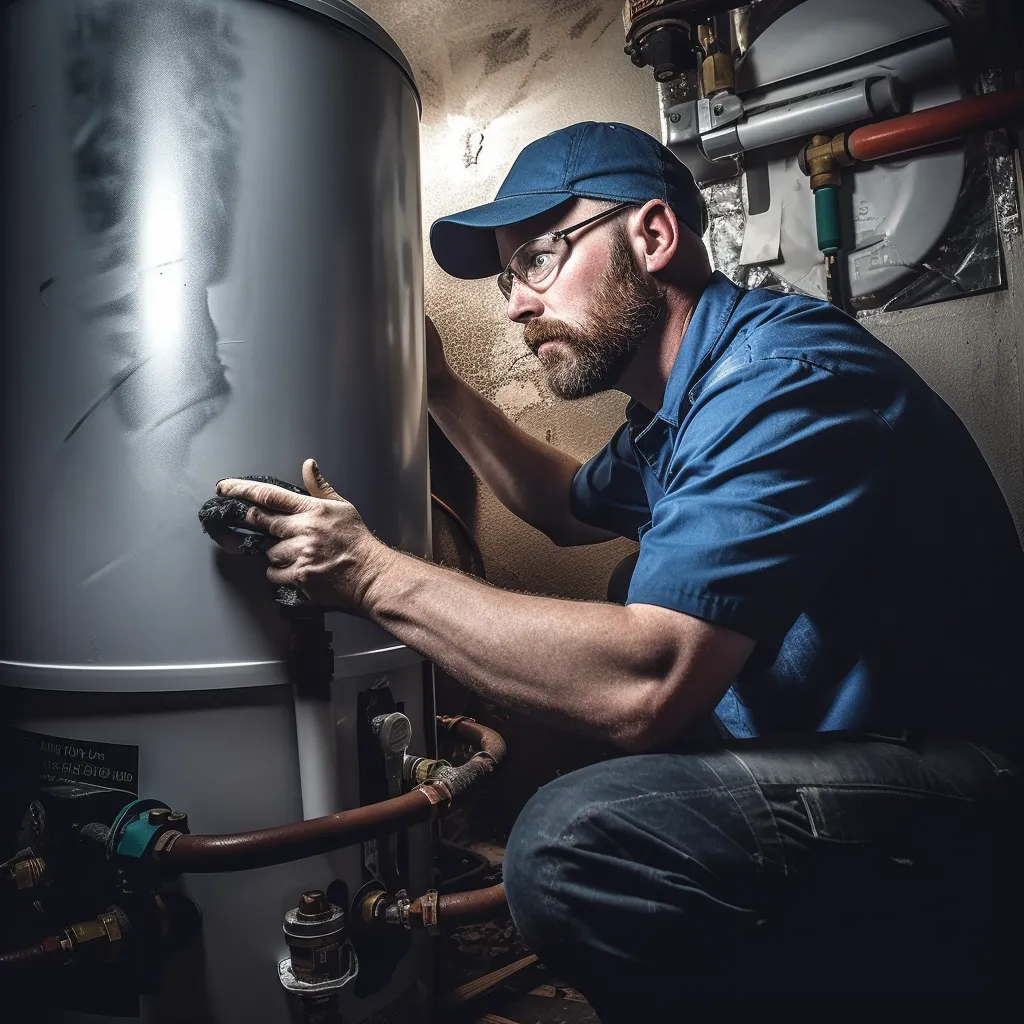
How to calculate the size of the water heater you need for your home
Calculating the appropriate size of a water heater for your Raleigh home is essential to ensure that you have sufficient hot water supply for all your needs. Determining the right size is based on factors such as the number of people in your household, the number of bathrooms, and your daily hot water usage.
First, count the number of people in your household who will be using hot water regularly.
Next, count the number of bathrooms in your home, as each bathroom typically requires hot water for showers and sinks.
Estimate your daily hot water usage, including activities such as showering, washing clothes, and running the dishwasher.
Once you have these figures, you can use a simple calculation to determine the size of the water heater you need. On average, each person in a household typically uses around 10-15 gallons of hot water per day. So, multiply the number of people in your household by 10-15 gallons. For example, if you have 4 people in your home, the estimated hot water usage would be 40-60 gallons per day. Additionally, each bathroom requires around 10-15 gallons per day for showers and sinks. Multiply the number of bathrooms in your home by 10-15 gallons and add this to the previous total. For instance, if you have 2 bathrooms, the estimated hot water usage for them would be 20-30 gallons per day.
Finally, factor in your estimated daily hot water usage for activities such as washing clothes and running the dishwasher, which typically requires around 20-30 gallons per day.


Research the different types of water heaters
When it comes to choosing a water heater for your home, there are several options available. One option is the traditional tank water heater, which stores a large volume of hot water in a tank and keeps it heated until it is needed. This type of water heater is reliable and can provide a constant supply of hot water.
Another option is a tankless water heater, which heats water on-demand. This means that hot water is provided instantly without the need for a storage tank. Tankless water heaters are known for their energy efficiency and can help reduce energy costs over time.
Hybrid water heaters combine elements of both tank and tankless systems. They offer energy-efficient operation by utilizing a heat pump to extract heat from the surrounding air and supplementing it with a traditional heating element when needed. This type of water heater provides a constant supply of hot water while also being energy-efficient.
Solar water heaters are another option to consider. These systems use the sun's energy to heat water, reducing reliance on traditional energy sources. Solar water heaters can be a great choice for those looking to reduce their carbon footprint and lower energy costs in the long run.
Finally, heat pump water heaters extract heat from the surrounding air or ground to warm the water. This makes them highly energy-efficient and cost-effective. Heat pump water heaters are a great option for those looking to save on energy costs while still maintaining a constant supply of hot water.
When choosing a water heater for your home, it's important to evaluate your household's specific needs, energy efficiency goals, and budget. By considering these factors, you can determine the best type of water heater that suits your needs and preferences.
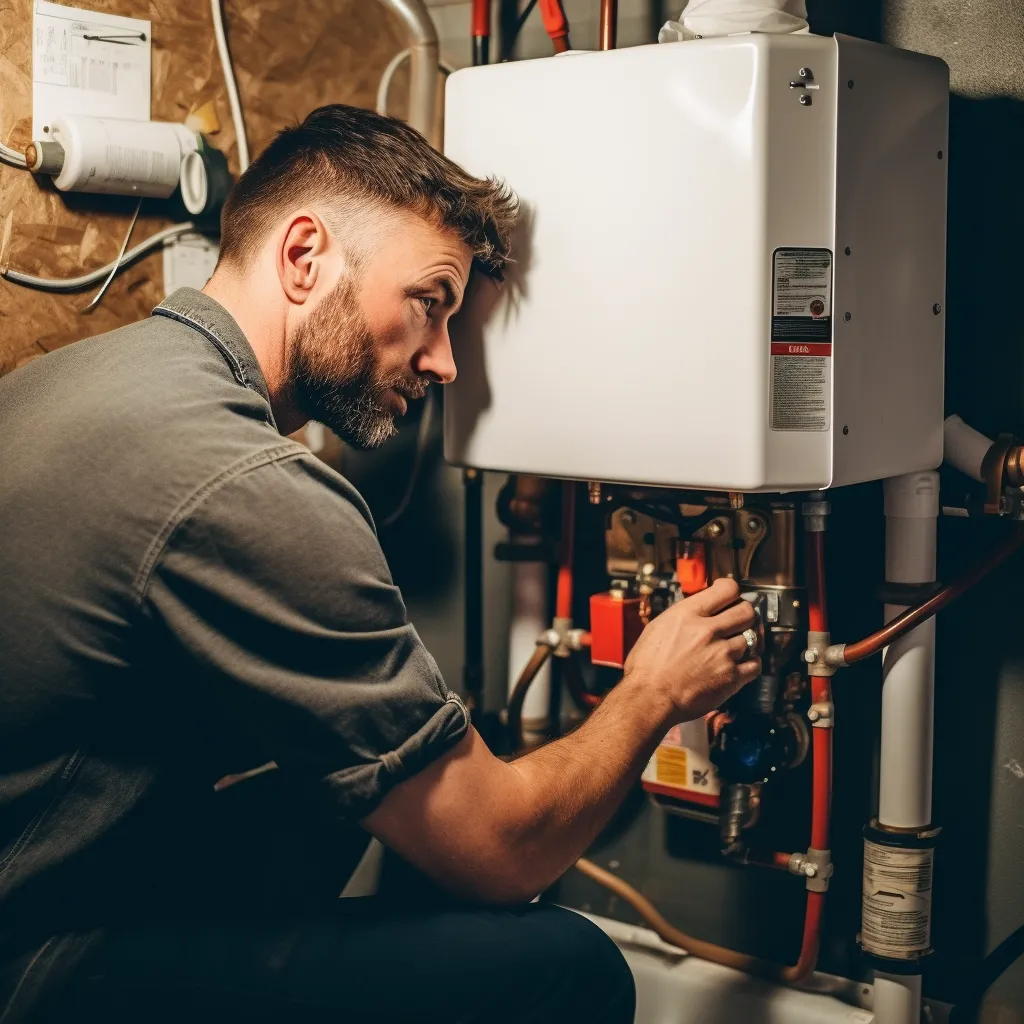
Cost of each type of water heater
When it comes to purchasing a water heater, there are several types available, each with its own cost. The prices mentioned below represent a general estimate and may vary depending on factors such as brand, size, and any additional features:
Conventional Storage Tank Water Heater: Conventional storage tank water heaters are the most common type. They store hot water in a tank and are available in different sizes, typically ranging from 20 to 80 gallons. The cost of a conventional storage tank water heater can vary between $300 to $1,500.
Tankless Water Heater: Tankless water heaters, also known as on-demand water heaters, heat water only when needed, without the use of a storage tank. They are known for their energy efficiency and ability to provide a continuous supply of hot water. The cost of a tankless water heater can range from $500 to $2,000 or more.
Heat Pump Water Heater: Heat pump water heaters are designed to extract heat from the surrounding air and transfer it into the water, making them highly energy efficient. Although they can be slightly more expensive upfront, their long-term energy savings can offset the initial cost. The cost of a heat pump water heater can range from $800 to $3,000.
Solar Water Heater: Solar water heaters utilize the power of the sun to heat water and are an environmentally friendly option. The cost of a solar water heater can vary depending on the size and installation requirements, but typically ranges between $2,000 to $8,000.
Condensing Water Heater: Condensing water heaters are highly efficient and extract heat from the exhaust gases. They are typically used with natural gas or propane and are suitable for both residential and commercial applications. The cost of a condensing water heater can range from $1,000 to $4,000.
Cost of installation and ongoing maintenance

When choosing a water heater, it is crucial to take into account both the installation and maintenance expenses. Here are a few essential factors to keep in mind:
Tank water heaters: While the installation costs for these products are generally lower, it is important to consider the potential long-term expenses associated with maintenance.
Tankless water heaters: While the initial installation costs for these products may be higher, their maintenance expenses tend to be lower. This leads to significant long-term savings for users.
Heat pump water heaters: When it comes to installation costs, these heaters fall into the medium-priced range, aligning with tankless heaters. However, it's worth noting that they might entail slightly higher maintenance expenses.
Solar water heaters: One of the drawbacks of these types of systems is that they typically come with higher installation costs, which can be attributed to their direct connection to the home's plumbing system.
When comparing water heaters, it is essential to take into consideration the fuel costs associated with each type. In terms of cost-effectiveness, gas heaters generally outperform electric models due to lower energy costs. However, it is important to keep in mind that the availability of fuel may vary depending on your location.
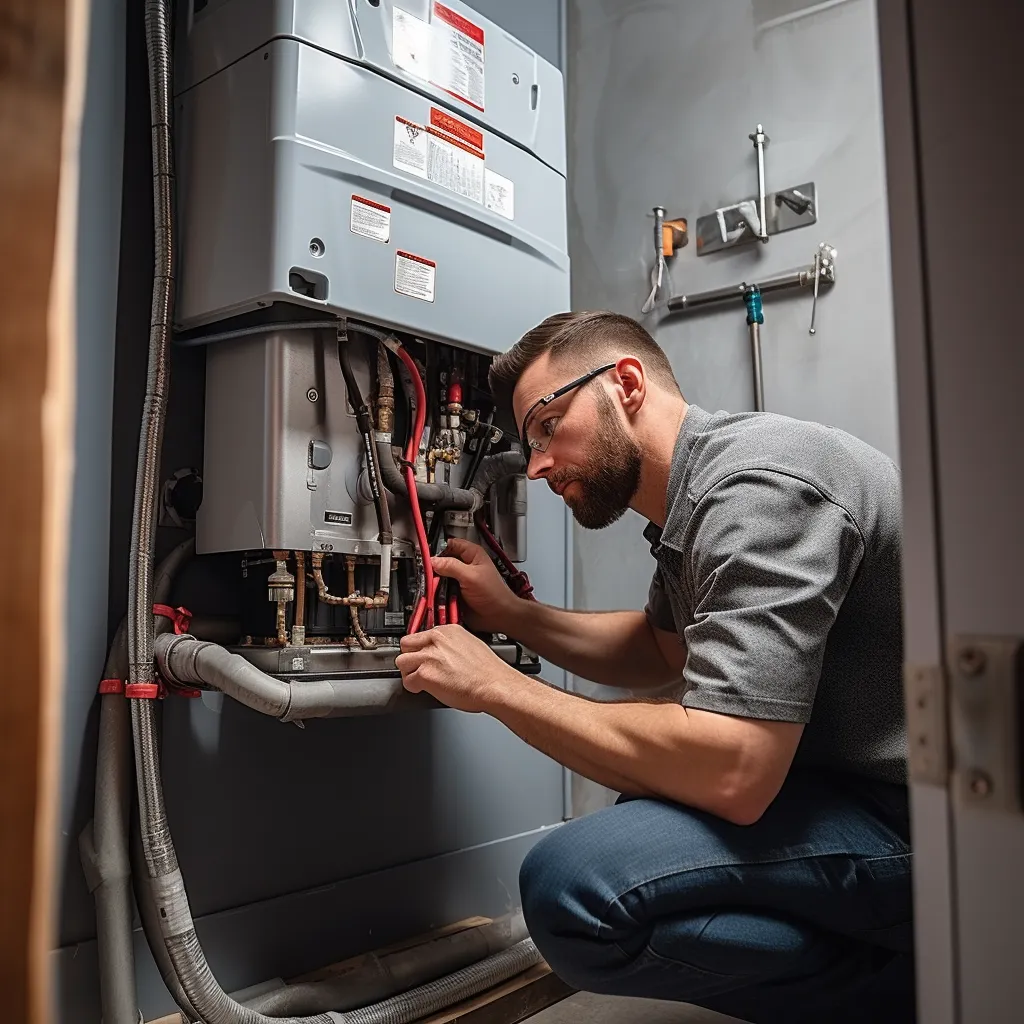
How to get an accurate cost estimate of a water heater
Obtaining an accurate estimate for the overall expense of replacing your water heater, which includes installation, can often prove to be a challenging task. Extensive research is usually necessary to ensure an accurate understanding of the total cost involved.
First, consider the size of your household. A larger household with more family members will typically require a bigger water heater to meet the demand for hot water. On the other hand, a smaller household may be adequately served by a smaller water heater. Next, assess your hot water usage patterns. Take note of peak times when hot water usage is highest, such as in the mornings when everyone is getting ready for the day, or in the evenings when multiple individuals may be taking showers or using hot water simultaneously. Consider the type of water heater that best suits your household's needs. Different types of water heaters, such as tankless or storage tank models, offer varying advantages.
To evaluate the expenses involved in installing or upgrading your water heater system, it is advisable to collect quotations from plumbing companies in your local area. By obtaining quotes from these professionals, you can determine the likely costs associated with the installation or upgrade of your water heater. This will enable you to plan your budget accordingly and make an informed decision about your water heater project. Gather quotes and compare them to find the best solution for your specific needs and budget.
When considering the cost of a water heater, it's important to take into account not only the price of the unit itself but also any warranties or additional features that may be necessary. These additional expenses can impact the overall cost and should be factored into your budgeting decisions. Make sure to carefully review and compare different options to find the best value for your needs. Taking the time to thoroughly assess the cost of the water heater, including any warranties or required features, can help you make an informed buying decision.
Tips to save money on installing a new water heater
If you're looking to save some money on installing a new water heater, here are a few tips to help you out:
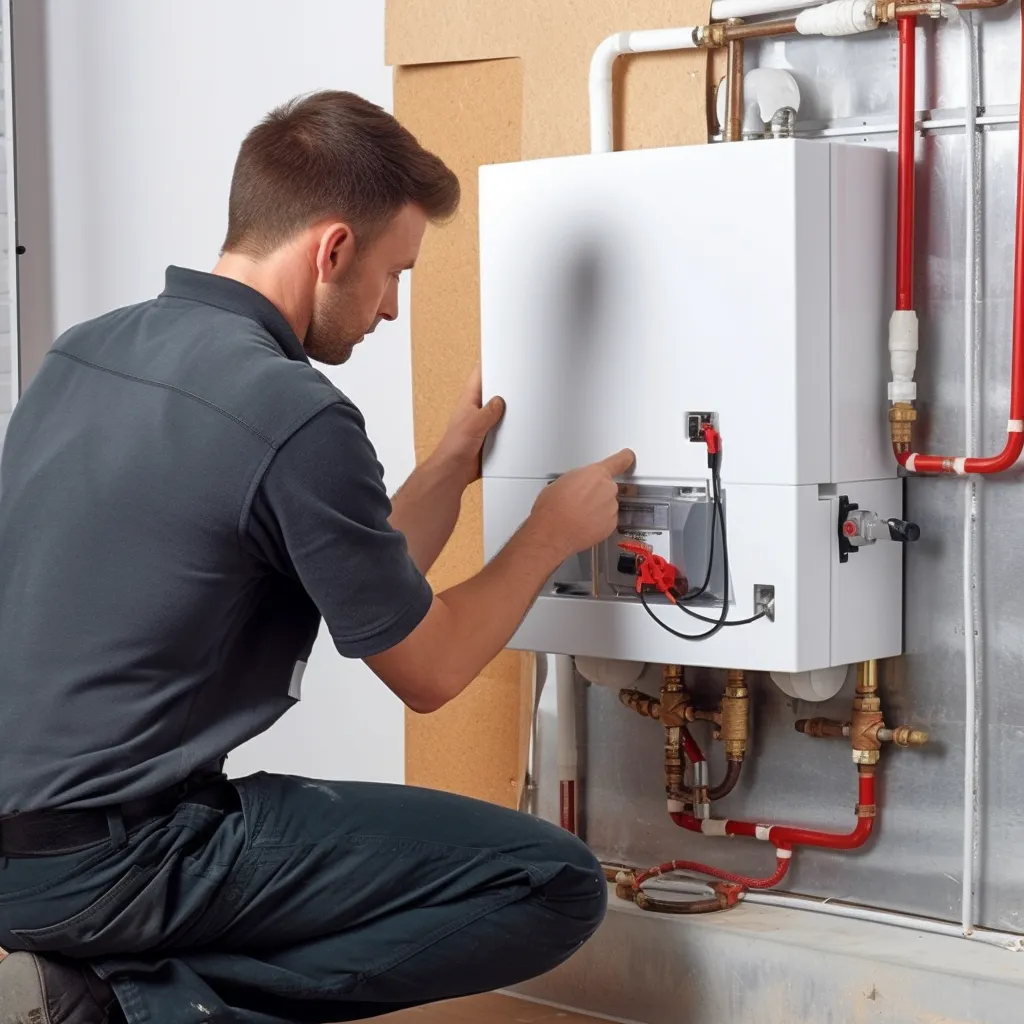
Do your research: Before purchasing a water heater, take the time to research different types and brands. Look for energy-efficient models that will help you save on your utility bills in the long run.
Consider the size: Make sure to choose a water heater that is the right size for your household's needs. A smaller unit may be more cost-effective if you have a smaller family or limited space.
Compare prices: Take the time to shop around and compare prices from different retailers or online vendors. Look for promotions or special offers that can help you save even more.
DIY installation: If you're handy and have experience with plumbing, you can save money by installing the water heater yourself. However, if you're unsure or inexperienced, it's best to hire a professional to ensure the job is done correctly.
Look for rebates or incentives: Check with your local utility company or government to see if there are any rebates or incentives available for installing an energy-efficient water heater. These can significantly lower your upfront costs.
Maintain your water heater: Regular maintenance can prolong the lifespan of your water heater and prevent costly repairs. Flush the tank and check for any leaks or signs of damage periodically.
Insulate your pipes: Insulating the hot water pipes connected to your water heater can help reduce heat loss during transit, resulting in lower energy consumption and cost savings.
What to do if you need services to replace your water heater
If you find yourself in need of water heater replacement services, there are a few steps you can take to ensure a smooth and efficient process:
It's important to do some research and find a reputable company that specializes in water heater installation. Look for reviews and recommendations from friends or family members who have had similar work done.
Next, contact the company to schedule an appointment for an assessment of your current water heater. A professional technician will visit your home to evaluate the condition of your unit and provide recommendations for replacement. During this assessment, they may also inspect the existing plumbing connections to ensure compatibility with the new water heater.
Once you have agreed on the right replacement option, the company will schedule a time for the installation. Make sure to ask about the estimated timeline and any necessary preparations you need to make before the scheduled appointment.
On the day of the installation, it's best to clear the area around your water heater to provide easy access for the technicians. They will disconnect and remove the old water heater and install the new one in its place. They will also connect the necessary plumbing and electrical components to ensure proper functionality.
After the installation is complete, the technicians will test the new water heater to ensure it is working correctly. They may also provide you with information on how to operate and maintain your new unit. Be sure to ask any questions you may have at this time.
Finally, make sure to keep the contact information of the company for any future maintenance or repair needs. Regular maintenance and annual inspections are recommended to keep your water heater running efficiently and to prolong its lifespan.
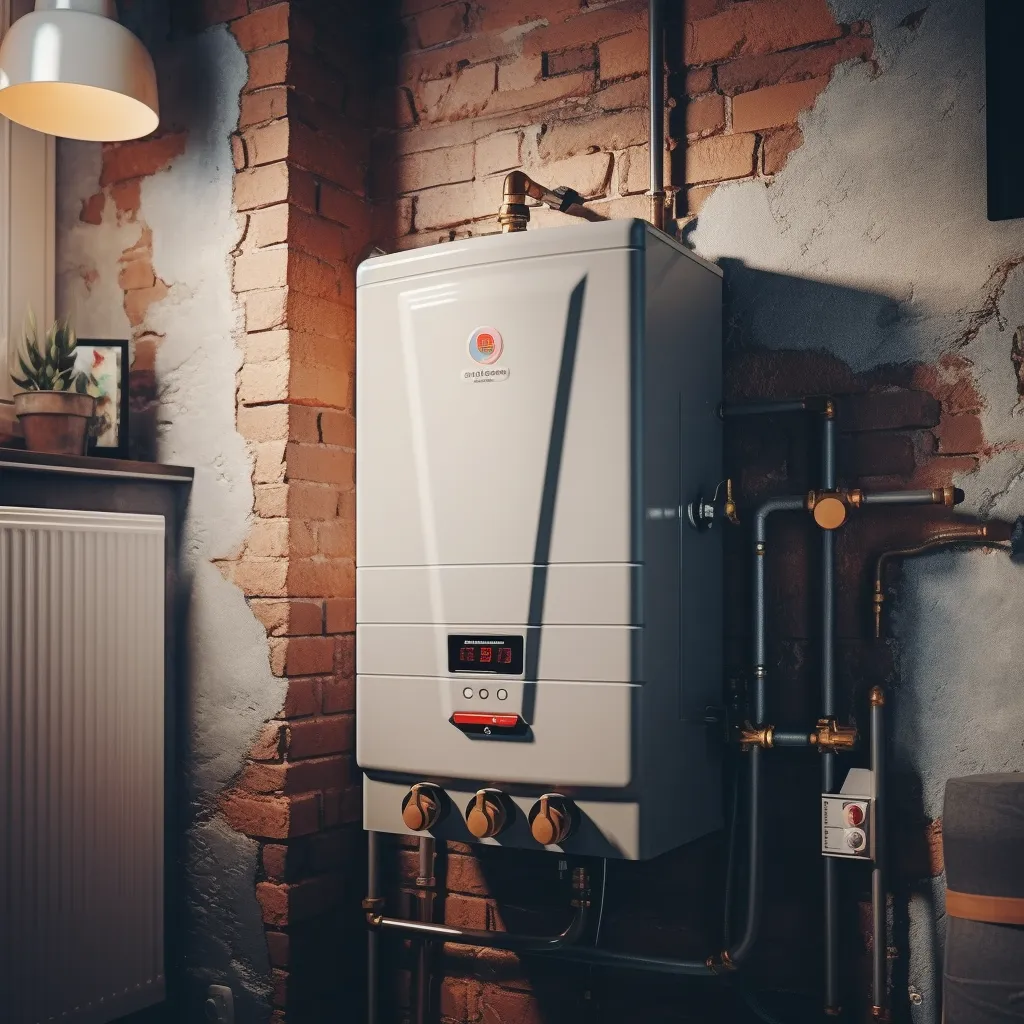
What a trustworthy and experienced professional will do
Our company offers a full range of comprehensive solutions to meet all of your water heater needs. Whether you require installation, maintenance, repair, or replacement, we have you covered. Our experienced technicians are equipped with the knowledge and skills to ensure that your water heater operates efficiently and effectively. No matter the size or type of your water heater, we have the expertise to handle it.
We provide a comprehensive assessment of your water heater, giving you the information you need to make an informed decision. Whether your system is in need of repair or replacement, we have the knowledge and skills to address any issues that may arise. Trust us to evaluate the condition of your water heater and provide the most suitable solution for your needs.
We offer you an accurate and comprehensive estimate for your project. This estimate covers all costs including labor, materials, as well as any applicable taxes.
We'll help you find the perfect water heater that meets all your specific needs. We understand that selecting a water heater can be overwhelming, but we make it easier by taking into account important factors such as size, efficiency, and price.
We have the expertise to manage the entire installation process effortlessly. From safely removing your old water heater to setting up and connecting the new one, we ensure a smooth and hassle-free transition. Trust us to handle every step of the installation process professionally and efficiently.
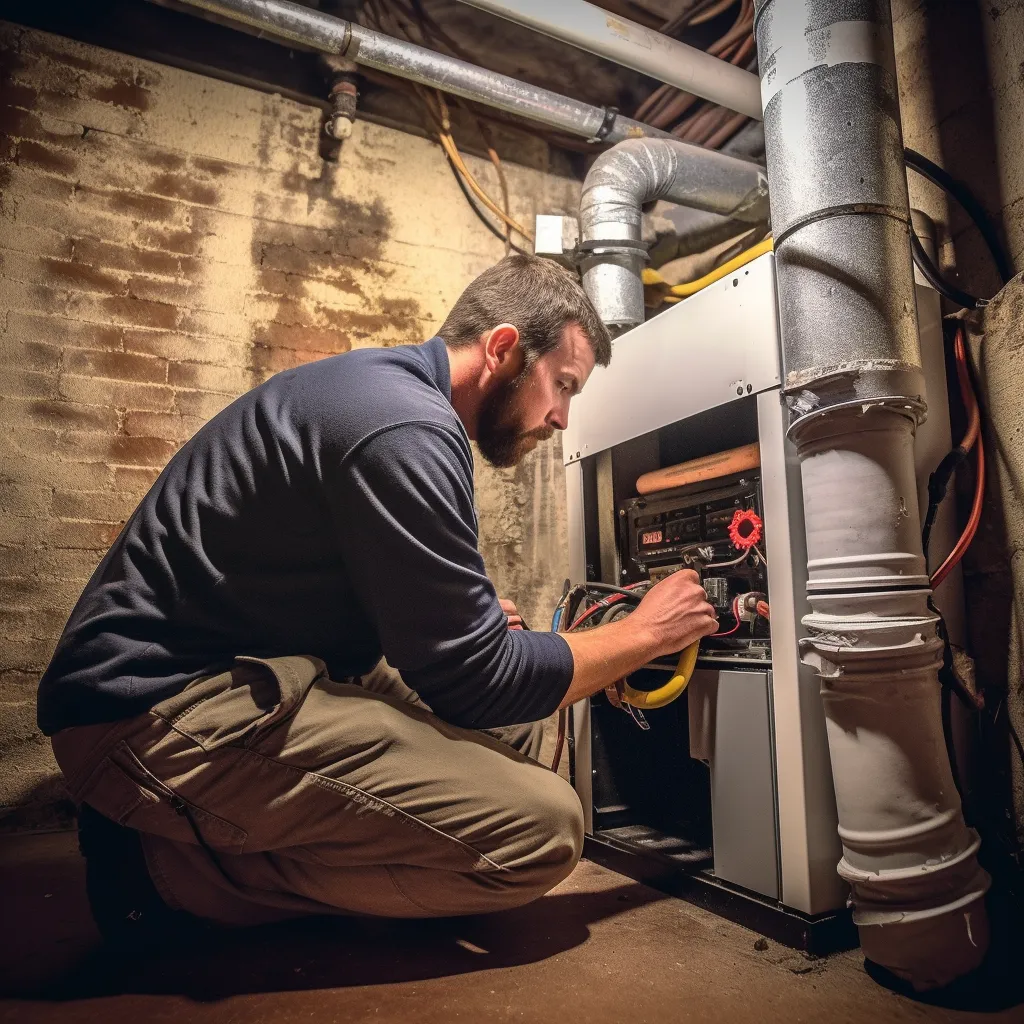
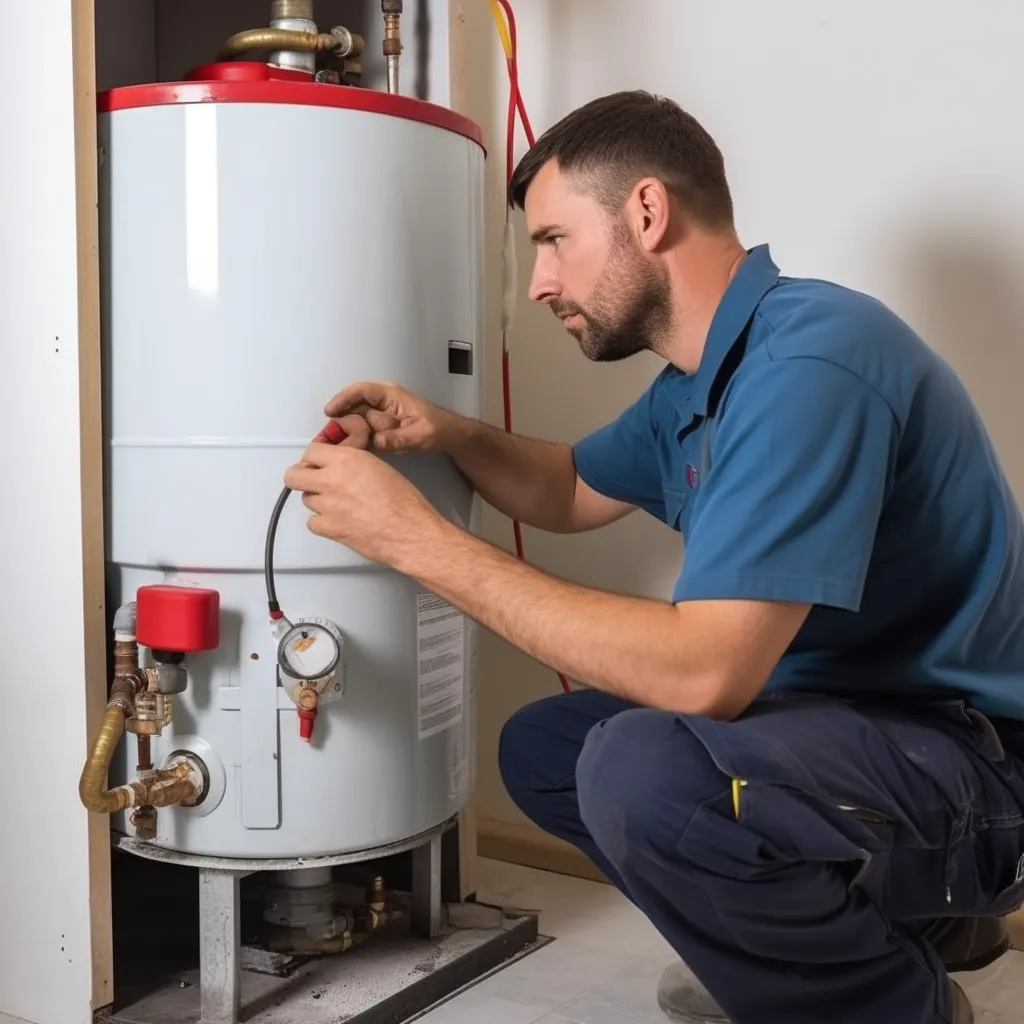
Water heaters have a limited lifespan
Understanding the right time to replace or maintain your water heater is crucial for homeowners. Generally, water heaters have a lifespan of 6 to 12 years, which is influenced by factors such as usage and efficiency. When contemplating a replacement, it's important to consider various factors that impact the cost. These factors include the type and size of the water heater, installation and maintenance charges, as well as potential savings from rebates, incentives, or extended warranties. To make an educated decision, it is advisable to conduct comprehensive research and compare different water heater models. Moreover, seeking advice from a licensed professional can offer valuable assistance and potentially save Raleigh homeowners both time and money in the long run.
Contact Us
GET IN FULL TOUCH
PHONE: (984) 223-8754
EMAIL:
david@waterheatersinraleigh.com
Almighty Plumbing
Raleigh, NC 27602
